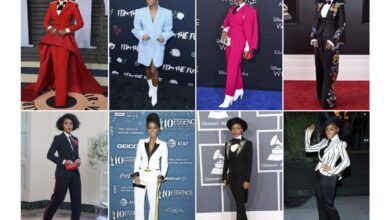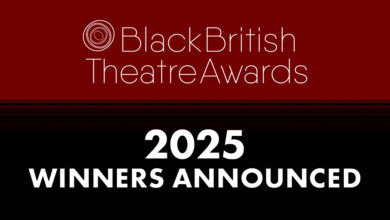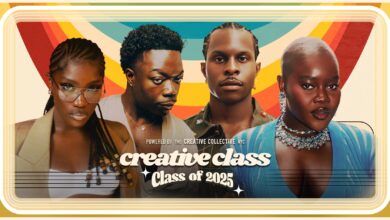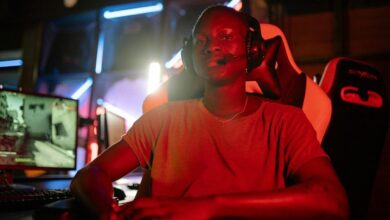Black Sounds Beautiful: How Beyoncé Has Empowered The Black Community Across Her Music And Art
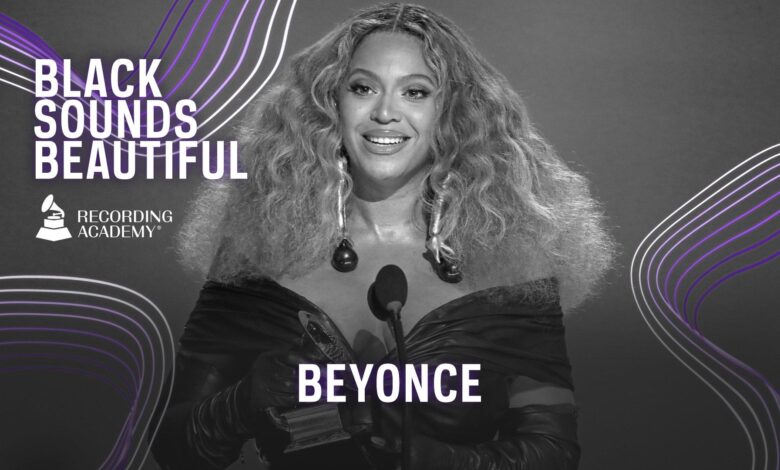
Designating a king or queen of a genre is a futile endeavor, made ever more difficult with the passage of time. The dancehall space in particular has never been a sovereign empire with one appointed monarch; rather an oligarchy where a privileged few dominate as a result of their numerous hit songs, enduring popularity, influence, and ability to command the stage.
Among this privileged few is Beenie Man, a GRAMMY-winning luminary who brought dancehall to an international audience. The four-time nominee has performed several highly-anticipated shows of late, including his first concert in the New York City area in over 10 years at the end of May. That event at the UBS Arena in Long Island was a testament to his longevity, multi-generational appeal, and a reaffirmation of his more than 30-year rule as, arguably, dancehall’s greatest live performer.
Beenie Man’s prolonged absence from the U.S. was due to his inability to secure a visa.In April 2010, his visa (as well as visas belonging to dancehall artists Aidonia, Bounty Killer, Mavado and sound system selector Ricky Trooper) was cancelled without explanation. Beenie Man regained his visa briefly in 2011, it was rescinded in 2015 then restored in late December 2024. The expectations surrounding his New York concert were understandably high.
Dapperly attired in a crimson suit with a full-length topcoat, black boots and grey fedora, supported by the incomparable Ruff Kutt band, two female backing vocalists and five female dancers with Jamaican flags tucked into their leather shorts, Beenie Man displayed relentless energy and star power. Early on, in an exaggerated Americanized vocal twang, the dancehall meminded the audience of his veteran status: “I’ve been doing this music for 45 years. I have 187 No. 1 songs [in Jamaica] and almost 2,000 hit songs, so now I’m gonna take us back in the day.”
While it’s impossible to verify Beenie Man’s (inflated) hit tallies, his 70-minute set didn’t allow enough time to perform all of his popular songs. Punctuating his vocals with yelps, screeches and his signature catchphrase “zagga zow,” Beenie Man’s set included the certified gold single “Who Am I (Sim Simma),” which reached No. 6 on the Billboard Hot Rap Singles chart, the opera tinged “Maestro,” hardcore dancehall gem “Girls Dem Sugar,” and 2004’s “King of the Dancehall,” a self-proclaimed yet much-deserved regal designation. He also shouted out other dancehall superstars who are often cited as contenders to the throne: Bounty Killer, Buju Banton, Vybz Kartel and Shabba Ranks.
Read more: Vybz Kartel Talks First GRAMMY Nomination, Tattoos, Finding God & Prison Reform
Beenie Man was born Moses Davis on Aug. 22, 1973 in the musically fertile Waterhouse area of Kingston, home to the late dub creator King Tubby, digital riddim innovator King Jammy and winners of the inaugural Best Reggae Album GRAMMY, vocal trio Black Uhuru. As a child, he received the nickname Beenie, which means little in Jamaican patois. At a precocious 5 years old, Beenie Man began deejaying (toasting patois lyrics) on his uncle’s Master Blaster sound system. He started recording at age nine, after winning a local talent contest with his song “Too Fancy.”
Shortly thereafter, he released his debut album, The Invincible Beenie Man: Ten Year Old Wonder. The album had little impact, but its title was somewhat prophetic and by the early 1990s, Beenie Man would prove his dancehall invincibility. Under the management of Patrick Roberts of Shocking Vibes Productions, he released early dancehall classics, “Modelling” and “World Dance,” which commenced a major hit-making streak that would extend well into the 2000s.
Over the past 45 years, Beenie Man has released 18 studio albums, including the 2001 GRAMMY winner Art and Life and eight compilations. He portrayed himself in the 1997 film Dancehall Queen and recorded the film’s theme song, with Chevelle Franklin, which cracked the Billboard Hot 100. His numerous collaborators include the Hot 100 charting “Feel it Boy” with Janet Jackson (produced by the Neptunes) and “Girls” with Akon, which reachedNo. 27. In October2024, Beenie Man was bestowed an Order of Distinction by the Jamaican government, “for his contribution to the development of Jamaican music-dancehall.”
Ahead of his UBS Arena show, Beenie Man spoke to GRAMMY.com about his stagecraft, impeccable style, what makes a great dancehall producer, and his advice to younger artists.
Congratulations on regaining your visa. How does it feel to be back in the U.S.?
It’s a beautiful feeling. I’ve been away for so long, the fans have been suffering, so it’s nice to be back so the people can see me do what I do best.
Were you given a reason why your visa was taken away?
No, just that I was ineligible to get a visa at that time. Dem use words like “we give you a privilege to come to America, so you just have to wait.” Honestly, I was thankful for the break. We had so many shows in the United States that if I was there, I couldn’t have toured Africa or other places in the world and hear what the fans there had to say about us.
I’ve seen your headlining performances in Jamaica at Reggae Sumfest several times over the past 32 years.
Yes, I’ve performed at Sumfest 24 times.
At Sumfest 2023 you, Bounty Killer, Cham, Wayne Wonder, Frisco Kid, and Mr. Easy performed together in tribute to dancehall producer Dave Kelly. You’ve had many hits produced by Dave, including”Slam,” “Ole Dawg,” “Silent Violence,” and “Dude” featuring Ms. Thing, Shawn. What makes him such an exceptional producer?
One word: genius. It’s all about the vibes that the producer brings, and Dave Kelly knows exactly what to say, what riddim to make. It’s always the right vibes when you are around him. He knows exactly what he wants, which direction he wants the artist to go in and that makes him different from the others.
The 1990s through the mid-2000s is considered dancehall’s golden age. During that period, you had many hits with various producers: Bobby Digital, Jeremy Harding, Tony Kelly, Sly and Robbie, and Patrick Roberts/Shocking Vibes. What made dancehall music of that era so special?
All of those producers have one thing in common: They respect the music and the artists so the artists can respect the work that they do. Many producers today only know how to make a riddim. The producer has to know how to start and end the song, how to mix the song and how to make you sound on the riddim. That’s what’s missing from dancehall today, that’s what changed the music from the 1990s to now.
Learn more: The Women Essential To Reggae And Dancehall
Another defining element of 1990s dancehall were the clashes between you and Bounty Killer. [Editor’s note: Bounty Killer was also honored with an Order of Distinction on the same day as Beenie Man.] When did you first meet each other and how did the rivalry begin?
I heard about Bounty Killer, he said me and him haffe clash. That was it. The first time we buck [meet up] was Stone Love 22nd Anniversary (in Kingston) by Portmore Entertainment Center. Then we buck at Sting (the now defunct Jamaican dancehall concert) the rest is history.
On May 23, 2020 you and Bounty Killer took your now friendly competition to online clash series “Verzuz.” Yours was the only segment featuring Jamaican artists; what did that “Verzuz” battle do for your career?
At that time it was COVID, nobody was going anywhere, so I was happy to do “Verzuz” because the worst thing for me is not to work. More people got to know me and Bounty Killer because of “Verzuz.” It was a comeback for dancehall but it wasn’t a comeback for us because we went nowhere, we just had to cool out because of COVID.
You are still regarded as perhaps dancehall’s greatest entertainer. How did your stagecraft become as engaging and skillful as it is?
You have to watch and learn, but if you only watch dancehall, then you don’t move from there. You have to watch Michael Jackson, watch how Stevie Wonder deal with the people, learn from the greats, adjust, adapt, and make it yours.
You started out performing as a child at sound system dances. How did the sound system training you received contribute to you becoming the performer you are today?
It was very important because experience teaches wisdom and the longer you are in music, the more wisdom you get, the better you can please the audience. It’s great to work in the studio but it’s even better to work live so people not only know your songs, they know you for who you are.
Do you feel today’s dancehall artists are at a disadvantage because they no longer hone their performances on sound systems?
What me figure out in these times is every man do them own thing and that’s not what dancehall is. Each one teach one, and the more you can learn from the man who was there before you, the stronger you can be. You can take your craft, put it with their craft and turn it into a totally different thing. So if them nah learn, them nah go receive.
You’ve been nominated for four Best Reggae Album GRAMMYs and you’ve won one. How did winning a GRAMMY impact your career?
The GRAMMY Award is an international thing. It takes you to places you haven’t been before, gives you a chance to perform in places like Australia, Singapore, South Africa, places where people maybe know your songs but never get the chance to see you perform, places where people don’t speak English, but they know every word of your song and that’s a great feeling.
In 2004 you released “King of the Dancehall” (which reached the lower rungs of the Billboard Hot 100) and you were crowned King of the Dancehall at Reggae Sumfest in 2009 (Vybz Kartel will be similarly enthroned at Sumfest 2025). What does that designation mean to you?
Just like Bob Marley is the King of Reggae, it means everything to any artist to be crowned king of their own game.
Yellowman, the first reggae deejay signed to an American major label, declared himself King Yellowman on the title of his 1984 album, he objected to your song “King of the Dancehall” and your 2020 cover of his big hit “Zungguzungguguzungguzeng.” In 2016, Vybz Kartel released his King of the Dancehall album, another declaration of regal status. Since you’ve all made extraordinary contributions to dancehall, can there be more than one king?
All of us are kings because we are born from women. Yuhzeeit? But what make me king is my work ethic and the love that I have for the music. I was in a contest [The Fader Presents King Clash, 2004] against reggaeton artist Tego Calderón and I “killed” him in the competition. That’s where we got the idea for the song “King of the Dancehall.”
Are you working on a new album? Can you share any details about it?
Yes, I am in the studio right now, the album will be released this year but I can’t give you the title yet. There are classic riddims but also new beats, new producers. We have original producers too. Tony Kelly will be a part of it, we’d like to get another Dave Kelly. It’s not fully a dancehall album because we have other genres, too.
There are many genres within your discography. You’ve done jazz (“Nuff Gal”), gospel (“Gospel Time“) and decades before Cowboy Carter, you went to Nashville and recorded a country track (“Ain’t Gonna Figure It Yet“). Any plans to do another country song?
Yes! Not for this album, but maybe the next album.
You consistently dress to impress. How do you choose what you will wear onstage?
You have to find a skilled designer who’s not too popular, then find something nobody else is going to wear; if you buy a Louis Vuitton suit and a man in the dance is wearing the same thing, it doesn’t make any sense. So you and the person who is getting you ready have to know style and say, “This is how we are going for this show.” I don’t care what type of show it is, I have to look proper on all shows.
Having achieved so much within dancehall music, do younger artists ask you for advice about their careers?
Yes, a few of them come and want to know how am I still here. The only thing that can make you last so long is love and respect for the music. Not for the cars, the crowds and the girls you can get, but for the music. When you finish touring, spend time with the music, go to the studio, make some songs, videos, so people will know that you are still here. It’s the love of the music that makes you the artist that you are.

